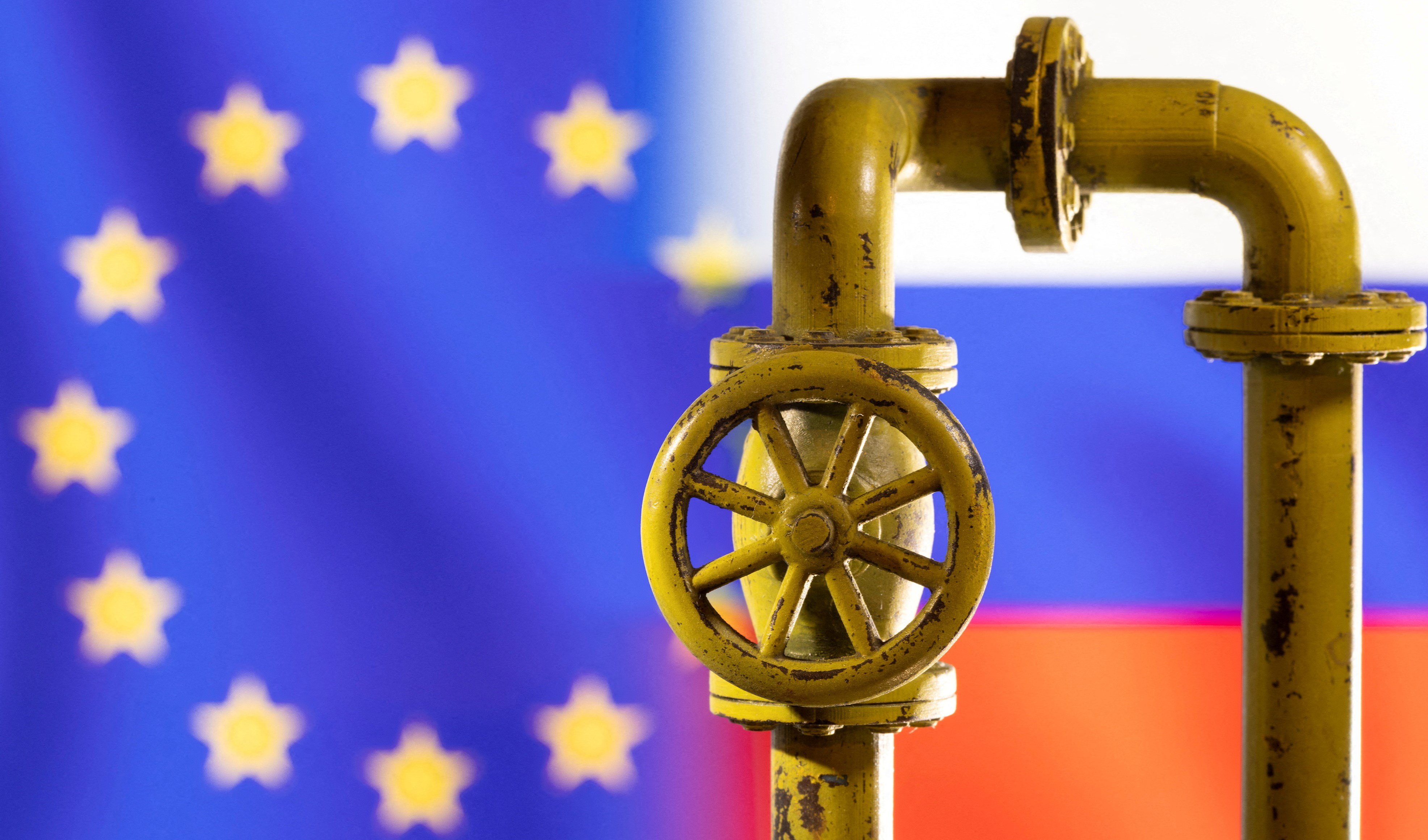Russian oil price cap to go into effect on Monday
The cap will not apply to cargo loaded before December 5, and a revision on any updates to the current cap cannot be applied until February 5.
-

The Russian price cap is set. (Reuters)
The EU, G7, and Australia have set the price cap on Russian oil, which is due to take effect on Monday, alongside an EU embargo on maritime deliveries of Russian crude oil.
The price cap measure insinuates that oil sold at $60 per barrel or less can continue to be delivered. For oil above that price, companies based in the countries involved in the cap will be prohibited from providing services of maritime transport like insurance.
The cap will not apply to cargo loaded before December 5, and a revision on any updates to the current cap cannot be applied until February 5. After mid-January, the cap will be revised every two months.
Read next: Germany urges partners to comply with price cap on Russian oil
Further market destabilization
According to a European official who did not see the Kremlin's warnings to stop deliveries as a threat, "Russia must retain an interest in selling its oil" or face the risk of diminishing global supply, leading to more price spikes.
In light of that, Ukraine suggested on Saturday that the price cap should have been set lower than $60, as it is "insufficient" to penalize Russia. The $60 price cap imposed is not "serious", Ukrainian President Volodymyr Zelensky said Saturday, explaining that the decision was "quite comfortable" for Moscow.
The official claimed that Russia would remain concerned about maintaining the state of its infrastructure, which would be damaged if production is halted, and keeping the confidence of its customers, including China and India.
After an OPEC+ videoconference on Sunday, Russia's Deputy Prime Minister Alexander Novak said, "We will sell oil and oil products to countries that will work with us on market terms, even if we have to reduce production somewhat," adding, "We are currently working on mechanisms to prohibit the use of the price cap tool at any level."
Novak warned that "further market destabilization" would be the sole result of the price cap, but Brussels believes otherwise as it will "directly benefit emerging economies and developing countries," which would obtain Russian oil at a lower price.
To benefit or not to benefit
Countries and companies that decide not to apply the price cap can still purchase it but cannot do so through Western companies that provide insurance or transport services.
Another European official stated that there are "clear signals that a number of emerging economies, particularly in Asia, will observe the principles of the cap," as Russia faces pressure from its clients to provide discounts.
As European companies dominate cargo transport and insurance, the official expressed the complexity and difficulty posed in finding substitutes as "extremely risky".
Risks
"If a third country flagged vessel intentionally carries Russian oil above the price cap, EU operators will be prohibited from insuring, financing, and servicing this vessel for the transport of Russian oil or petroleum products for 90 days after the cargo purchased above the price cap has been unloaded," a European Parliament's statement said on Saturday.
Russia has pledged to stop supplying oil and gas to countries that impose price ceilings. Russia's Permanent Representative to International Organizations in Vienna, Mikhail Ulyanov, declared last Wednesday that the European Union will have to live without Russian oil starting this year as a repercussion of the price cap imposed on the country's oil.
He also recalled how Moscow had made it clear that it will supply oil to the countries that supported the price cap that he described as "anti-market".

 4 Min Read
4 Min Read








